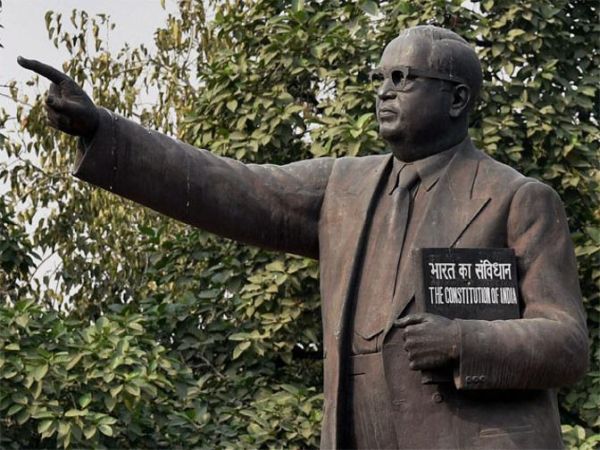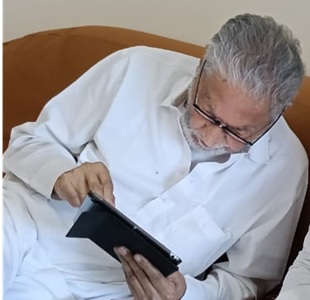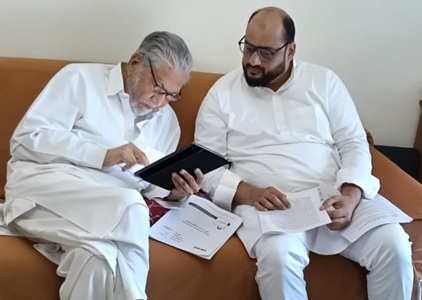By L.R. Balley
On 6th December, 1956 a great son of India Dr. B.R. Ambedkar breathed his last breath leaving behind billions of his followers in tears. His followers pay tributes to this visionary social scientist by Celebrating 6th December as Mahaparinirvan Day.
In contemporary world, the thoughts and vision of Dr. B.R. Ambedkar are still alive in the minds and hearts of all those who believe in his political philosophy of “State Socialism.” Out of prejudice or caste-test hatred Baba Saheb Dr. B.R. Ambedkar is often, described as leader of the Dalits. But this is not correct. He was an intellectual, a statesman, rationalist, constitutionalist, a great educationalist, a thinker and research scholar.
Dr. Ambedkar was an atheist and he not only stood for freedom and welfare of humanity, he devoted his whole life to this noble cause.
The following three comments are suffice to explain the great qualities of Dr. Ambedkar’s personality.
Columbia Universities Vice-President and Provost, while awarding the degree of Doctor of laws said : “Dr. Ambedkar is a great reformer and a valiant upholder of human rights.”
Jawahar Lal Nehru : While paying tribute to Dr. Ambedkar, on 6th December, 1956 in the Indian Parliament had said that he was chief architect of constitution and a symbol of revolt and he rebelled against, something against which all ought to rebel.
Noble prize winner Gunnar Mydral commented that “All over world the memory of Dr. Ambedkar will live for ever as a truely great Indian, in the generation which laid down the directions of Independent India.”
Dr. Ambedkar was pioneer in emancipation of Hindu woman and piloted Hindu Code Bill. When he found that the Bill was wilfully being delayed, he resigned from Nehru Cabinet. Thus he was the first minister who resigned on principle ground.
Dr. Ambedkar while speaking on the resolution regarding aims and objects of the Constitutions had said : “I do not understand how it could be possible for any future government which believes in doing justice socially and economically and politically unless its economy is a socialistic economy.”
Dr. Ambedkar submitted a scheme, which he names it a ‘State Socialism : Therein he pleaded for (1) declaring Agriculture as an Industry (2) Nationalization of basic and Key Industries and (3) Nationalization of Land and establishing collective Farms in which all, irrespective of Caste and religion can work. But his scheme was rejected.’
Dr. Ambedkar fought for various types of reservations for the Scheduled Castes and Scheduled Tribes. But on 30th September, 1956 he presided over the last Executive meeting of ‘Scheduled Castes Federation’ and passed resolution that-political reservation be abolished as this is perpetuating Caste System and those who won election for Lok Sabha work more for their political masters and not for the poor. But Upper caste Hindus persist to keep political reservation in tact because it serves their purpose of keeping the lowly masses as obedient creatures.
Dr. Ambedkar called Constitution a ‘Wonderful Document.’ Had the ruling class of India followed and implemented the Constitution as drafted by Dr. B.R. Ambedkar, India would have been politically undivided, socially inclusive and economically strong country in the world. Regrettably, this did not happen.
***
References
1. Constituent Assembly Debates New Delhi, Vol. 1 page 99 to 103.
2. Parliament Debate Vol. 10 (Part II, Page 2059).
3. Ambedkar and Social Justice, New Delhi, Vol. 2 Page 196.
Editor, Bheem Patrika, Jalandhar.






0 Comments